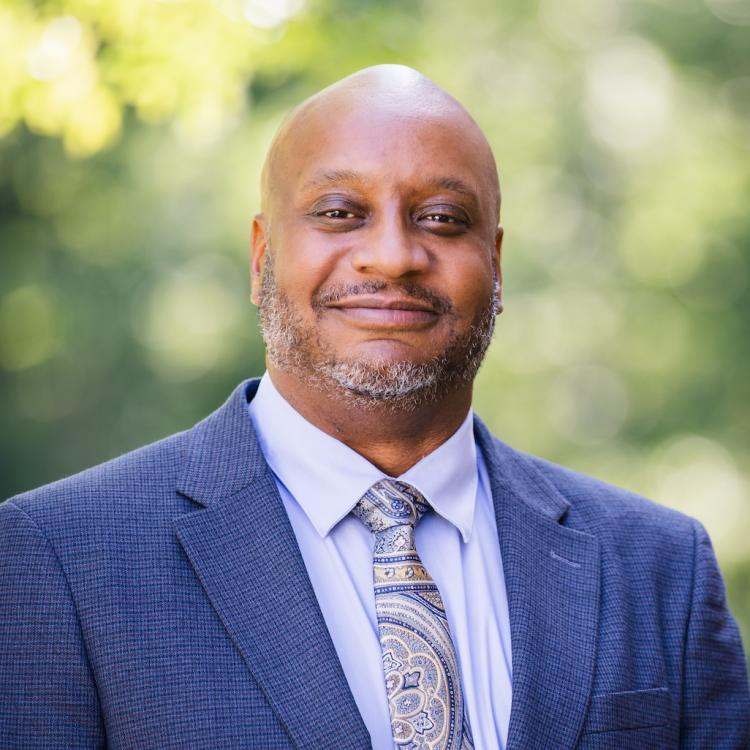Dr. Tim Brown, the new dean of Eastern’s Arts and Humanities College, was on academic probation when he was our age. He arrived at Westchester College with his eye on a communications degree and finished his first semester with eyes boggled by boatloads of impossible writing assignments. Confidence flagging and GPA in the dust, the unprepared student weighed his options. Fast-forward ten years, and this same young man was boss of the communications department he had nearly failed.
This is one of those phenomena that Dr. Brown referred to as a “Joseph Moment” during my interview with him. Have you ever had a “Joseph Moment”? Have you experienced one of those poignant moments of reflection on how God used a trial in your life for your good? This past week, I leafed through chapters of “Joseph Moments” in Dr. Brown’s personal history.
To quickly describe how he “got here”, after working several years at West Chester University as chair of the communications department and founder of the Multicultural Faculty Committee, Dr. Brown took a step further and became Dean of Queens University in Charlotte. Next, Montgomery Community College hired him as Dean of eighteen different programs, after which Dr. Julie Morgan connected him to Eastern University.
Surveying Dr. Brown’s Christian walk showed me his determination to serve the needy. He and his wife attended a church of what he referred to as “real people” in Buffalo, New York, where many parishioners worshiped in church on Sunday morning and slept on the street that evening. The switch to his current non-denominational church in the suburbs of Philadelphia provided Dr. Brown with a new category of service to navigate.
“Everyone’s needs are taken care of. Non-denom is different in the suburbs,” Dr. Brown said. By this I assumed he was referring to the fact that none of his fellow churchgoers slept on a bench the night before, and could concretely call a place aside from the church “home.”
Homemaking – a concerted effort to make one’s fellow humans feel at home in a given place – lives at the center of Dr. Brown’s Christian life. “Everyone needs a place where they feel like they are valued,” Dr. Brown remarked, “like ‘The Homeplace’” by Bell Hooks. “I feel like I bring that to the table as a leader,” Dr. Brown pondered as we talked about awareness of the need for a Homeplace. “When people feel [at home], great things can be done.”
I researched Hooks’ essay a little further and found that it aligns with the literature which Dr. Brown and I began our conversation discussing: “The Narrative Life of Frederick Douglass” and “The Color of Water” by James McBride. All of these pieces revolve around a racial theme, especially centering on the African American identity. An African American himself, Dr. Brown felt the impact of racism notably in his childhood and highschool years in the ‘70s. Reflecting on the time when his high school football coach asked him to step down as the team’s quarterback, Dr. Brown asserts that God used the racially motivated decision to teach him to use his skills even when yanked from the leadership positions he wanted. Yes, you guessed it, this was also a “Joseph Moment.”
What struck me most about my conversation with Dr. Brown was the way he reliably named and praised his mentors. His frequently voiced appreciation for the helpers in his life highlighted for me his grateful, “you-first” worldview. In this vein, Dr. Brown affirms that he feels no pretentious or status-driven attitude in the Eastern faculty. “They really care about their students,” Dr. Brown said. By carefully and caringly naming pastors, professors, department heads, and family members who pushed and pulled him towards all sorts of success, Dr. Brown revealed to me his drive to not only think of the students of our college before himself, but to be to us what those mentors and friends were to him. He commemorates all these positive forces in his life much more fully in his book, “No-one Cheers for Goliath” (winner of an NYC Big Book Award) than I could here.
On a practical level, Dr. Brown has Goliath-sized plans for the Arts and Humanities College at Eastern. “Let’s think big,” he said. Dr. Brown wants to involve us in Philadelphia communications and will go even further.“Let’s have our own sports channel!” Dr. Brown, said.Having grown up playing sports seriously, Dr. Brown got involved in his local sports newscast early on. His focus on athletics could prove perfect for our gradually more-and-more athletic University. These are practical considerations, and the Dean is practical when it comes to prospective students’ future careers as well. Dr. Brown wants the college to establish its identity to prospective students as a private institution which will present signature experiences that are meaningful to students looking for jobs post-graduation.
At the end of our interview, Dr. Brown asked if he could pray for me. His kind and thoughtful prayer has inspired me to end this article with this prayer for him: that the Lord would grant to him “the Spirit of wisdom and of understanding, the Spirit of counsel and of might, the Spirit of the knowledge and fear of the LORD” as he creates “homeplaces” and “Joseph Moments” in the lives of our students here at Eastern University (Isaiah 11:2-3).

